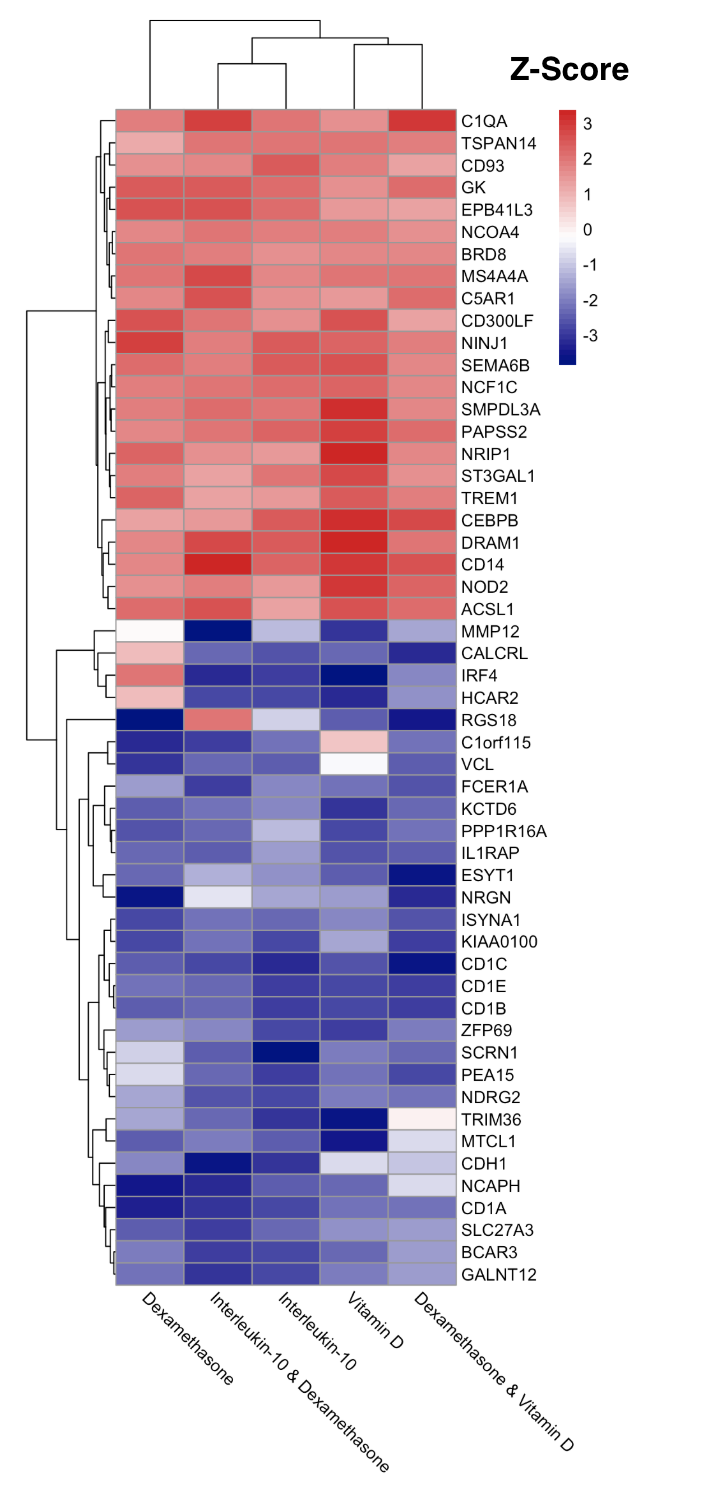Transcriptomic analysis identifies a tolerogenic dendritic cell signature
Harry Robertson1,2, Jennifer Li Dr1, Ellis Patrick Dr1,2, Natasha M Rogers a/prof.1.
1Centre for Transplant and Renal Research, WIMR, Westmead, Australia; 2School of Mathematics and Statistics, University of Sydney, Sydney, Australia
Introduction: Dendritic cells (DC) are central to regulating innate and adaptive immune responses. Strategies that modify DC function have provided new therapeutic opportunities in transplantation. Current pharmacological approaches can alter DC phenotype to induce tolerogenic DC (tolDC), a maturation-resistant DC subset capable of directing a regulatory immune response that are being explored in current clinical trials in transplantation. The classical phenotypic characterization of tolDC is limited to cell-surface marker expression and anti-inflammatory cytokine production, although these are not specific for current clinical trials. TolDC may be better defined using gene signatures, but there is no consensus definition regarding genotypic markers.
Methods: We address this shortcoming by analysing available transcriptomic data to yield an independent set of differentially expressed genes that characterize human tolDC. We have validated this transcriptomic signature and also explored gene differences according to the method of tolDC generation.
Results: We established a set of 53 genes that accurately described the human tolDC genotype. The dataset was also validated in three independent, publicly available tolDC RNAseq datasets. Further, we utilised single cell RNAseq to establish that DCs isolated from the liver appeared to be more correlated with tolDCs than any other organ.


Discussion: Our panel of 53 genes may serve to independently quantify the regulatory capacity of a tolDC prior to clinical trial administration. Our finding, that DCs isolated from the liver are more tolerogenic than other organs may provide reasoning for the decreased incidence of rejection and resistance to ischemic perfusion injury within the liver.

right-click to download
